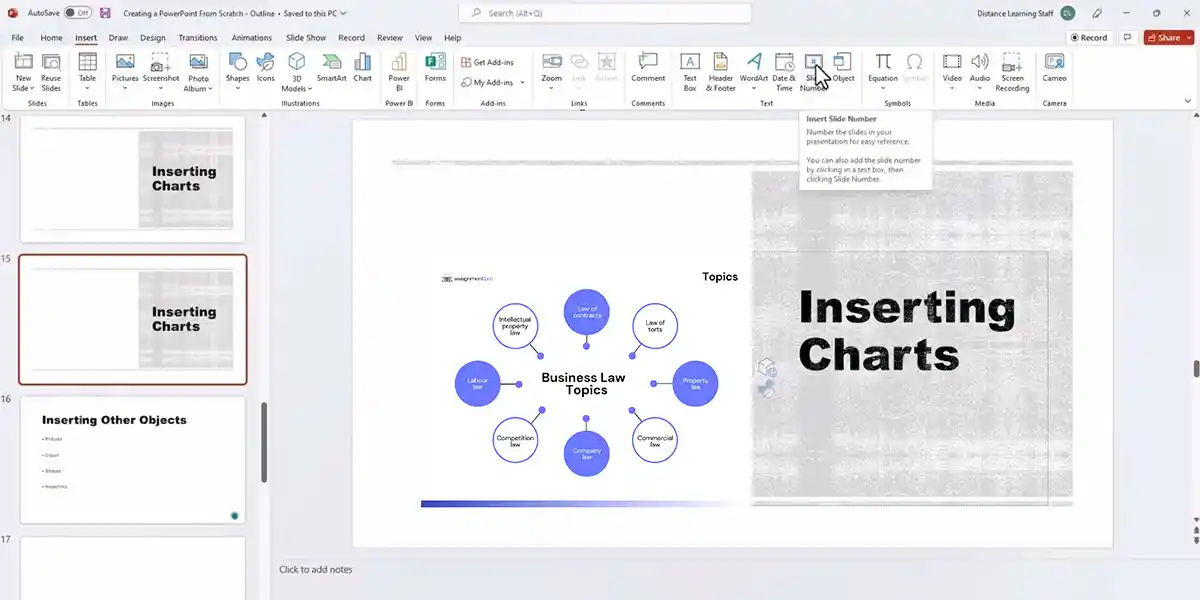
Assignment Guide for Top College Majors and Excelling in Their Assignments
Jan 4, 2024 | 15 Min Read
Welcome to Get Exam Done – your premier destination for reliable and professional exam assistance for online students. We understand the challenges of balancing academic commitments and needing trustworthy partners to help you excel in your online exams. Whether you're seeking someone to do my exam or are looking to pay someone to do my exam, our dedicated team is here to support you. We prioritize your success by offering professional service that ensures a stress-free exam experience. Trust us to help you achieve your academic goals and take the next step toward success.
Discover everything you need to kickstart your journey into the world of top college majors and effectively handle their assignments. Dive into this blog now! Are you contemplating college and curious about the leading majors? Or are you already in college, grappling with the demands of your assignments? If so, you're in the right place! Choosing a college major is one of the pivotal decisions students make during their academic journey. It sets the stage for future careers and molds their entire college experience. Yet, selecting a major is just the starting point. Students must also navigate the hurdles associated with college assignments; challenges that can vary based on their chosen fields of study. This post will delve into the top college majors and provide insights on handling their assignments. So, whether you're a high school student exploring college options or a college student seeking take my exam service, read on!
A college major denotes a specific area of study that students concentrate on during their undergraduate education. Majors can be categorized broadly, encompassing humanities and social sciences, STEM (science, technology, engineering, and mathematics), business and economics, health and medicine, arts and design, communication & media studies, environmental science, psychology, and information technology. Now, let's explore the significance of choosing the right major for you.
Significance of Selecting the Right Major
Opting for the appropriate college major is a critical decision that profoundly impacts a student's future career prospects. Careful consideration of interests, skills, and goals is essential when making this choice. Additionally, it's crucial to research available majors and the career paths they lead to.
Overview of Challenges Tied to College Assignments
College assignments pose challenges for various reasons. Students may need to absorb new material, develop fresh skills, and produce high-quality work within limited timeframes. Furthermore, these assignments often necessitate creative and effective thinking, problem-solving, and articulate communication of ideas.
Exploring Popular College Majors
Humanities and Social Sciences: Humanities and social sciences explore human culture, society, and behavior. Students in these majors cultivate robust critical thinking and communication skills, gaining the ability to perceive the world from diverse perspectives and comprehend intricate issues. Majors within this category include English, history, philosophy, political science, sociology, psychology, and economics. These majors focus on studying human culture, society, and behavior. Graduates with humanities and social sciences degrees can pursue careers in various fields, including education, journalism, law, government, and business. Common humanities and social sciences major assignments include research papers, essays, and case studies. Students in these majors may also be required to participate in presentations and debates.
How to deal with Humanities and Social Sciences Assignments like Research Papers
Research papers are a common assignment in humanities and social sciences majors. When writing a research paper, it is important to choose a topic that is of interest to you and that you can research thoroughly. It is also important to structure and organize your paper effectively.
Here are some tips for writing a successful research paper
- Choose a topic you are interested in and can research thoroughly and develop a research question or thesis statement.
- Gather evidence from credible sources to support your thesis statement.
- Structure and organize your paper effectively.
- Also, remember to write in a clear and concise style.
- In the end, proofread your paper carefully before submitting it to minimize the chances of error.
STEM (Science, Technology, Engineering, and Mathematics)
STEM majors are focused on the study of the natural world and the development of technology. Students in STEM have strong analytical and problem-solving skills. They can also use their knowledge and skills to develop new technologies and solve real-world problems.
Overview of STEM majors
STEM majors include biology, chemistry, computer science, engineering, physics, and mathematics. These majors focus on the study of the natural world and the development of technology.
Career prospects in STEM fields
STEM fields are in high demand, and graduates with STEM degrees enjoy excellent job prospects. STEM majors can pursue careers in various industries, including healthcare, aerospace, technology, and manufacturing.
Specific assignment types and difficulties
Common assignments in STEM majors include problem sets, laboratory reports, and design projects. Students in STEM majors may also be required to participate in group projects and presentations.
How to deal with STEM Assignments
STEM assignments can be challenging, but there are a few things that students can do to succeed. Here are some tips for dealing with STEM assignments. Develop strong problem-solving skills. STEM assignments often require students to solve complex problems. Students can develop problem-solving skills by practicing with practice sets and other assignments. Be comfortable working collaboratively. Many STEM assignments require students to work on group projects. Students should be comfortable working with others and communicating their ideas effectively.
Business and Economics
Business and economics majors are those that focus on the study of business operations and financial management. Students studying these subjects develop strong quantitative and analytical skills. They are also able to understand and apply business principles to real-world situations.
Introduction to business-related majors
Business-related majors include accounting, finance, marketing, and management. These majors focus on the study of business operations and financial management.
Career opportunities in business and economics
Graduates with business and economics degrees can pursue careers in various fields, including banking, finance, consulting, and marketing.
Assignment expectations and tips for success
Assignments in business and economics majors often require students to apply their skills and knowledge to real-world scenarios. Students in these majors may be required to write case studies, prepare financial reports, and develop marketing plans.
How to deal with Business Assignments like Case Studies
Case studies are a common assignment in business and economics majors. When writing a case study, carefully analyzing the business scenario and developing a well-reasoned solution are essential. Here are some tips for writing a successful case study.
- Identify the critical issues in the case study.
- Analyze the business's strengths, weaknesses, opportunities, and threats (SWOT).
- Develop a solution to the case study’s problems.
- Write your case study in a clear and concise style.
- Edit and proofread to pinpoint mistakes or other details you might have overlooked.
Health and Medicine
Health and medicine majors focus on studying human health and disease, and they prepare students for careers in the healthcare field. Students studying these subjects often develop strong scientific and clinical skills. They are also able to understand and apply medical knowledge to help patients.
Different Health and Medical Majors
Nursing, medicine, dentistry, pharmacy, and public health are included in this category—career Paths in the Health Sector. Graduates can work in hospitals, clinics, private practices, public health agencies, or research institutions. Assignments can be challenging due to the complex medical material, requiring students to learn about difficult conditions, treatments, and procedures.
Arts and Design
Arts and design majors focus on studying creative arts and developing artistic skills, requiring students to express themselves through their work.
Exploration of Artistic Majors
Architecture, art, design, fashion, and music are encompassed in this category.
Potential Careers in Arts and Design
Graduates can pursue advertising, graphic design, interior design, and web design careers as artists, musicians, or architects. Creativity is essential, demanding students to think innovatively and develop technical skills.
Tips for Creative Assignments
- Nurture creativity through brainstorming and sketching.
- Balance innovation with academic requirements.
Communication and Media Studies
Communication and Media Studies (CMS) majors study the creation, transmission, and reception of messages through various media channels, including traditional and digital platforms.
Different CMS Majors
Encompassing journalism, public relations, advertising, broadcasting, film and television, digital media, media and culture, and communication studies are career paths in communication and media studies. Graduates pursue careers in journalism, advertising, marketing, public relations, social media, and content creation across diverse industries.
Challenges Associated with CMS Assignments
CMS assignments require effective writing for diverse audiences and critical analysis of media messages. Here are some tips for communication and media studies assignments, such as crafting compelling narratives and staying updated on media trends.
Environmental Science and Sustainability
Environmental Science and Sustainability (ES) is an interdisciplinary field studying the natural environment and strategies for protection.
Overview of ES Majors
ES majors explore climate change, pollution, biodiversity loss, and sustainable development, which are career prospects in environmental science and sustainability. Graduates can pursue careers as environmental scientists, conservationists, and policy analysts.
Different Types of Assignments and Requirements in ES
ES assignments involve interdisciplinary research, data analysis, and the development of sustainable solutions. Here are a few tips for ES Assignments: Collaborate with experts from various fields and focus on advocacy and solutions.
Psychology and Counseling
Psychology and Counseling (PC) majors study the human mind, behavior, and emotions, acquiring skills for counseling and support.
Introduction to Psychology and Counseling Majors
PC majors delve into theories of personality, development, and psychopathology, learning counseling techniques. Career Opportunities in Psychology and Counseling: Graduates can pursue careers as psychologists, counselors, therapists, and social workers.
Assignment Expectations
- Assignments often involve research, case studies, clinical reports, and treatment plans.
- Tips for Psychology and Counseling Assignments:
- Develop empathy and active listening skills.
Information Technology and Computer Science
Information Technology (IT) and Computer Science majors focus on computer systems, software development, and information management, playing a vital role in today's technology-driven world.
Major Subjects
Courses include programming languages, database management, network administration, cybersecurity, and artificial intelligence.
Career Opportunities
Graduates can find rewarding careers as software developers, systems analysts, cybersecurity specialists, or IT consultants.
Different Types of Assignments in IT Subject
- Assignments involve coding, programming tasks, and project-based simulations.
- Tips for Dealing with IT and Computer Science Assignments.
- Stay updated on technological advancements.
- Utilize technology tools for enhanced efficiency.
- Strategies for Handling College Assignments.
Now, let's explore some helpful strategies for tackling challenging college assignments
- Effective time management is essential for success; it enables students to meet deadlines and complete assignments.
- Craft a realistic study schedule incorporating classes, study time, and breaks.
- Colleges offer resources like tutoring, writing centers, and academic advising; utilize these for assignment help.
- Explore online tools providing access to practice problems, study guides, and additional resources.
- Don't hesitate to seek help from professors, tutors, or classmates when struggling with assignments.
- Leverage the expertise of professors for guidance and feedback, tutors for learning material, and classmates for support.
- Effective study routines enhance learning and assignment efficiency; tailor routines to personal preferences.
- Active learning enhances material comprehension, including note-taking, class participation, problem-solving, and teaching others.
- In research-intensive majors, focus on honing experimental skills, including lab techniques and data analysis.
- Engage in collaborative research projects for diverse perspectives and comprehensive understanding.
- Balancing Workload and Extracurricular Activities Maintaining a balanced college life is crucial for success.
Strategies for Managing Assignments Alongside Other Commitments:
- Create a prioritized schedule.
- Break down large assignments into smaller tasks.
- Set realistic deadlines.
- Take breaks for mental refreshment.
- Ask for help when needed.
- Bonus Advice for College Students.
Leveraging Internships and Practical Experience
Never underestimate the importance of internships; they provide practical experience, aligning theoretical knowledge with real-world applications.
- Integrate classroom learning with skills acquired through internships or part-time work for a well-rounded skill set.
- Networking is essential for future career opportunities; attend industry events, connect with professionals, and build a supportive network.
- Explore workshops, seminars, and online courses for continuous professional development, preparing for evolving demands in your chosen field.
The Takeaway!
In conclusion, remember these key takeaway thoughts
- Consider your interests and career goals when choosing a major.
- Different majors entail distinct assignment expectations; be prepared.
- Choose a major you're passionate about for motivation.
- Work hard; college demands effort but is worth it.
- Utilize all available resources, including tutors and advisors.
- Don't hesitate to ask for help; your support system is there.
Your major is just one facet of your college journey; have fun, get involved in activities, and make the most of the experience!
Related Blogs

Assignment Guide for Top College Majors...

Conquer Your Real Estate Exam with Our Profi...

Exploring the Writing Pathway with Confidence

How Do You Enhance Assignment Research Skills For Top Grades

How to Avoid Online Exam Scams

How to Deliver an Impactful PowerPoint Presentation Student...

Decision to Enlist Help for Your Online Nursing Exam

The Evolution of Online Exams

The Ultimate Certification Passing Guide

A Student's Complete Guide to Improve Writing Skills